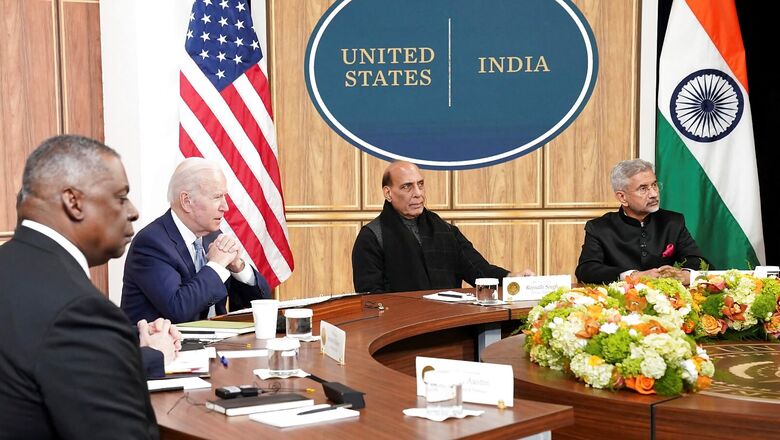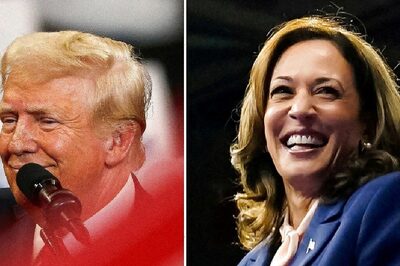
views
On September 24, 2022, the Foreign Minister of India gave a detailed speech at the United Nations General Assembly’s 77th Session in New York. In his speech, he portrayed the objectives of India’s foreign policy and outlook. The theme of the session was “A Watershed Moment: Transformative Solution to Interlocking Challenges”.
S Jaishankar first highlighted the post-pandemic changing of global order. The first part of his speech highlighted the tremendous development and progress India has made over the last 75 years as it celebrates Azadi ka Amrit Mahotsav.
He further said the Indian journey is based on the toil, determination, innovation, and enterprise of millions of ordinary Indians. The speech included points such as becoming a developed country, removing the colonial mindset through multilateralism, protecting heritage, achieving unity and integrity, and fulfilling its duties and responsibilities towards the international community. All these points are integral parts of our age-old rich heritage as we believe in one world, one family.
In this light, the question arises regarding the role of India in the changing world order marked by the US-China rift, India’s position in the Ukrainian crisis, and at a larger level, to ensure peace and security and the possible way forward for India to join the league of developed nations.
India has always trusted that global and national good can go hand in hand. Believing in this, India supplied vaccines to 100 countries and helped a number of countries in evacuation from conflict-hit countries.
The foreign minister pointed out that the objective of the present world is green growth, connectivity, digital delivery, and accessible healthcare. Going further, he said there is a change in the landscape and the world is slowly recovering from the economic distress of the pandemic. Many middle and low-income countries are struggling with a debt crisis and over and above this, there is a price rise of fuel, fertilizers and food.
The Ukraine conflict has contributed not only to the price rise but trade disruptions and diversions. The Indian Foreign Minister indirectly mentioned China’s aggressive role in Indo-Pacific which is disturbing the stability in this region. The Global South is aggressively suffering from climate change and post-pandemic economic disorder.
India has used the General Assembly stage to clarify its position on the Ukraine conflict. The foreign minister gave a straight and honest answer by saying that we are on the side of peace, dialogue, diplomacy, and observance of the United Nations Charter. The statement of India calling for an immediate cessation of violence and hostilities in Ukraine is important because it has maintained its neutrality regarding its bilateral relationship with Russia.
India urged both sides to end this conflict so that the rising price of fuel, fertilizers, and foods may come down and developing and lower-income states get some relief. India raises its voice for the fragile economies of the South Asian region.
Jaishankar highlighted India’s commitment to humanitarian aid specifically to the neighbours, the climate change goals of India, and our efforts for engaging with the international community with equal responsibilities.
In recent times, India’s position as an emerging world power has gained strength from being an idealist moralizer to a pragmatic dealmaker and being the largest democracy possessing rich democratic values, military strength, nuclear weapons and potential for growth in the coming decades.
Historically, India has strongly opposed an interventionist international community, manifested through concepts such as humanitarian intervention that it later modified by accepting the doctrine of Responsibility to Protect (R2P) at the UN World Summit in 2005.
With the advent of the 21st Century, India has amended itself to remain flexible in its approach to international rules and norms. What needs to be understood is that the balancing of the relations with the US and Russia poses a challenge for India. At one end is Russia, which increasingly proposes alternative ideas of global order, focused on ideas of multi-polarity. On the other hand, India’s partnership with the US in the Asia-Pacific and the Indian Ocean region through the QUAD which also includes Japan and Australia will largely determine the future course of action.
For India, whose foreign-policy objective has been to demand a place in decision-making councils of the world, the need of the hour is for an inclusive approach where India involves the states as well as non-state actors at the multilateral level to ensure peace, stability, and growth.
Abhinav Mehrotra is Assistant Professor and Dr. Biswanath Gupta is Associate Professor at OP Jindal Global University. The views expressed in this article are those of the authors and do not represent the stand of this publication.
Read all the Latest Opinions here




















Comments
0 comment